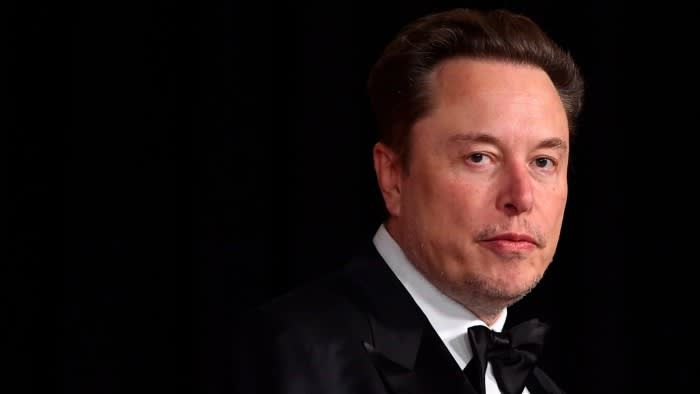Elon Musk files new lawsuit against OpenAI and Sam Altman

Access the Editor's Digest at no cost
Roula Khalaf, the person in charge of the FT, chooses the stories she likes the most for this newsletter that comes out once a week.
Elon Musk has taken legal action against OpenAI and its CEO Sam Altman, arguing that the AI company went against its original goal of helping people by entering into a business deal with Microsoft. This lawsuit brings back Musk's previous concerns about OpenAI's direction.
The lawsuit from the wealthy tech mogul was submitted to a federal court in California on Monday, following his sudden decision to drop a similar case in a state court about two months ago.
The most recent report contains fresh accusations that Altman and fellow OpenAI co-founder Greg Brockman violated federal civil racketeering laws, and asserts that Musk and other backers were persuaded to invest in OpenAI by its false claim of being a humanitarian organization.
The lawsuit claims that Elon Musk's legal battle against Sam Altman and OpenAI is a classic story of selflessness versus selfishness. It alleges that Altman and his co-defendants purposefully manipulated and tricked Musk, taking advantage of his genuine worries about the potential risks of artificial intelligence.
Altman and Brockman cleverly persuaded Musk to help create their fake non-profit organization by assuring him that it would take a more secure and transparent approach compared to other technology companies motivated solely by profit.
"When OpenAI's technology reached a point of transformative artificial general intelligence, Altman changed the story and began to profit from it," the lawsuit claimed. "With Microsoft as a partner, Altman created a complex network of for-profit OpenAI affiliates, involved in widespread self-dealing, took control of OpenAI's board, and systematically depleted the non-profit organization of its valuable technology and staff."
In January 2023, the new company made an agreement with Microsoft for $10 billion. This deal gave Microsoft a portion of the profits and allowed them to include OpenAI's technology in their cloud and search engine services.
Starting in 2019, Microsoft has put around $13 billion towards OpenAI, positioning itself ahead of other tech companies in Silicon Valley in the competition to create advanced AI technology.
Nevertheless, Microsoft's intricate investment arrangement with OpenAI has led to antitrust inquiries from regulators in both the US and EU.
In Musk's recent legal case, he is asking the court to determine if OpenAI's newest models have reached AGI, which is software that can think like a human. Musk believes that if OpenAI has achieved AGI, their licensing agreement with Microsoft should be canceled because Microsoft's investment only gives them a portion of OpenAI's profits before AGI was reached. Musk claims that OpenAI is motivated to delay confirming their AGI achievement because it could impact their financial interests.
He is also seeking compensation for all of the benefits and profits that OpenAI gained from Musk's contributions.
The latest development in the ongoing dispute between Musk and Altman, two well-known figures in Silicon Valley competing for control over AI technology, is the renewed legal altercation. The conflict first arose in 2018 when Musk stepped down from the board of OpenAI due to a disagreement regarding the organization's research direction. A year later, OpenAI's commercial division was created, further escalating the tensions between the two.
Musk started his own AI company called xAI, which aims to make money, last year. In the previous month, he mentioned that he planned to ask for permission from Tesla's board, a company he leads, to put $5 billion into xAI. xAI was estimated to be worth $18 billion during a round of fundraising in May.
OpenAI's worth was estimated at $86 billion in a sale of employee shares that finished in February. Musk alleged in the legal case that the business had been “just valued at an incredible $100 billion”.
OpenAI chose not to provide a statement regarding the recent legal action. They dismissed Musk's previous lawsuit as "confusing and unimportant", and shared a blog post containing some of Musk's emails from the beginning of the company. These emails seemed to indicate that Musk recognized the necessity of obtaining substantial funds to support the development of AI models.
An attorney representing Musk, Marc Toberoff, informed the New York Times that the previous lawsuit was not strong enough. He stated that the current lawsuit is much more powerful and assertive.
More information was provided by Cristina Criddle.









































